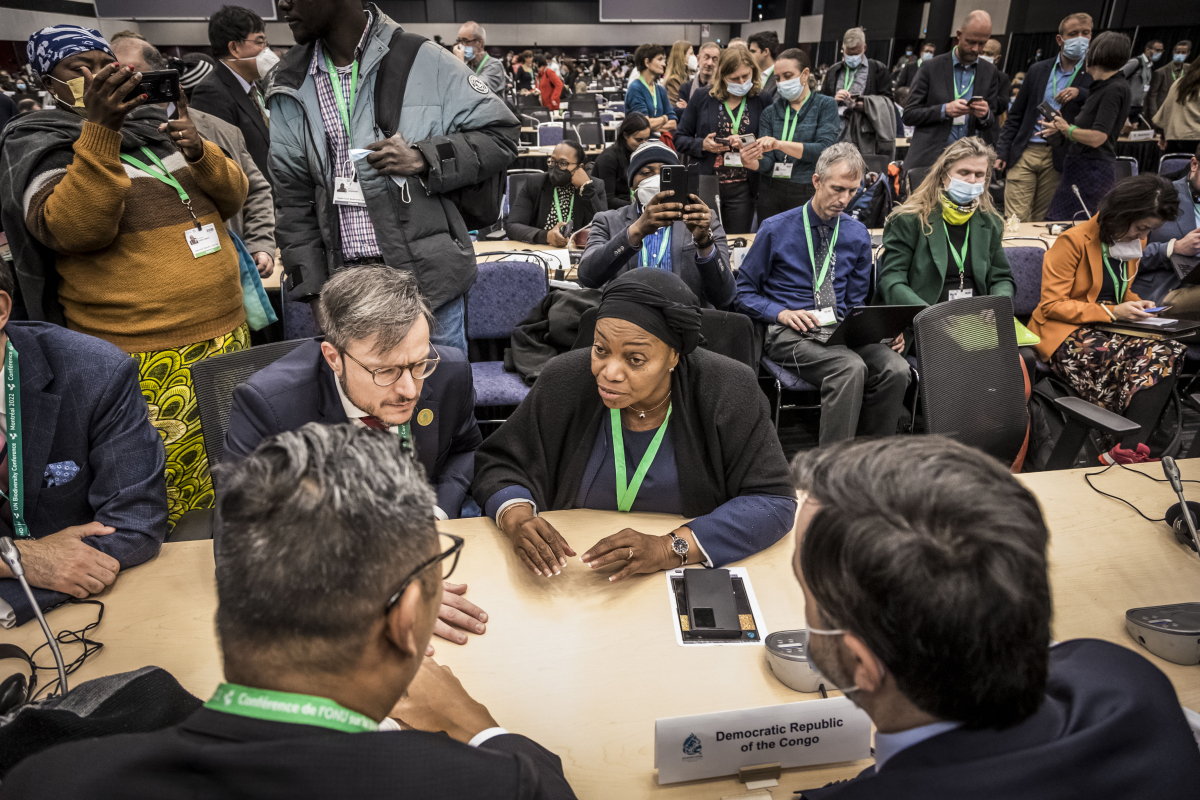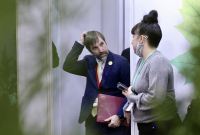Support strong Canadian climate journalism for 2025
The Convention on Biological Diversity negotiations in Montreal this past December were a rare moment for global reflection and political action on the devastating loss of biodiversity worldwide. The talks also marked a high point in growing awareness of the essential role nature has to play in our survival. Learning to live with the pandemic has further deepened this connection for many people.
Though the final agreement was short on key details and many from the Global South experienced unacceptable barriers to fully participating, it set the stage for governments to act with bold new laws and policies in 196 countries. Crucially, the deal emphasizes respect for Indigenous Peoples’ rights and massively increasing nature protections by 2030.
In theory, signatories like Canada will immediately move forward with concrete measures to deliver on these commitments. However, this federal government has been stunningly inconsistent in its approach to the wildlife extinction crisis and its impacts in Canada.
For example, while the government was flexing its political clout to secure a global biodiversity deal, its ambassador to the European Union was busy lobbying against regulations to better protect biodiversity with strict requirements on forest products entering the EU zone from countries like Canada.
A letter from the ambassador ignored the enormous impacts of logging on wildlife and claimed that essential traceability requirements would be too “burdensome” for multibillion-dollar industry giants to meet.
Global Affairs isn’t the only department stalling biodiversity protections, either. Despite the dire state of forests across the country — with collapsing caribou populations, growing emissions and historic protests to prevent their wanton destruction — Natural Resources Canada still parrots industry greenwash to the world that all Canadian logging is sustainable.
Ironically, Environment Minister Steven Guilbeault recently proposed emergency protections in British Columbia for a rare owl species threatened by that same industry.
These contradictory actions by disparate branches of government are undermining the necessary co-ordinated actions to halt biodiversity loss, which Prime Minister Justin Trudeau himself loudly championed in Montreal. Fanning the flames of an extinction crisis on the one hand, ringing the fire alarm on the other.
Another puzzling case is Environment Canada’s recent proposal for a national “biodiversity offsetting” strategy. Similar to the debunked logic of carbon offsets, the idea is that developers can wipe out biodiversity in one area if they agree to somehow regrow it somewhere else.
Never mind halting biodiversity loss, the proposal even opens up the possibility they will be allowed to do this simply by paying a fee. Ontario Premier Doug Ford introduced similar “pay-to-say” endangered species legislation in Ontario in 2019 to the horror of environmentalists.
One way to fix this inconsistency at the federal level is through new legislation to ensure Canada’s international nature commitments agreed to in Montreal are implemented. New legislation can ensure greater accountability for achieving federal commitments through transparent and independent annual reporting. Under this law, the environment minister would be required every year to publish and table in Parliament independent progress reports toward achieving the 2030 targets. This reporting should identify barriers to progress — within government or otherwise. If the government is again not achieving its targets, the minister must explain why and come up with immediate plans to address failures.
This will allow the public to learn exactly why habitat is still being destroyed and the factors, or ministries, causing it. With such provisions, we can expect fewer examples of the federal government resisting much-needed wildlife protections and instead get a more holistic approach across departments that is in line with clear political and ecological imperatives.
More than seven in 10 Canadians supported this proposed law in polling commissioned by Greenpeace Canada last November. More than 40,000 have signed our petition calling for its swift passage.
Critically, this legislation must also provide new powers to the public to sue the government of the day for failing to deliver on its nature commitments. Having such a legal right would shift power back to local communities most negatively impacted by environmental harms. Perhaps unsurprisingly in our polling, people from lower-income households showed some of the strongest support for a new law with these public powers.
If hosting the biggest biodiversity summit in a decade can’t get all branches of government rowing in the same direction, then maybe the threat of lawsuits and mandated court action will be a powerful motivator.
Either way, we need a whole-of-government approach to halting biodiversity loss.
Shane Moffatt leads Greenpeace Canada’s nature and food campaign, whose purpose is to maintain life on Earth in all its diversity. He has been working in environmental justice and human rights advocacy for over 15 years and has been with Greenpeace Canada for a decade in a variety of positions. An Irish-Canadian, his family has been connected to Canada for several generations, beginning in the 1940s. He is a frequent commentator in the media and holds a law degree from University College Dublin and a master's in law from the University of Toronto, both with a focus on the environment, rights and corporate accountability. As a settler on Indigenous lands, Shane recognizes that the work to build a more ecological and just society starts with reconciliation and decolonization.






Comments
Hear! Hear!
Thanks for the link to the "no flies on us" NRCan forestry web page. It seems to unbelievably represent thinking from, oh, 40, 50, 60, 70 years ago. It's a perfect example of the dubious value of the word "sustainable".
To industry, "sustainable" is a word to comfort shareholders: it means to them that profits can be kept up.
For them, it's got nothing to do with the environment, or the climate, or health, or anything but their ability to keep on keeping on, as usual.
And government sees it similarly.